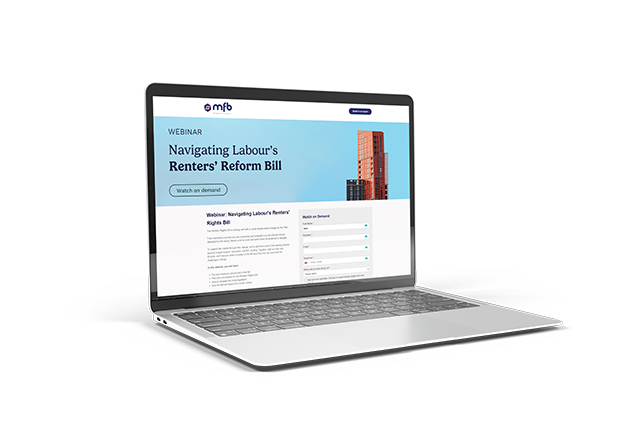Following the first reading of the Renters’ Rights Bill in parliament, what are the key legal implications for buy to let landlords?
Labour plans to better protect tenants with its new Renters’ Rights Bill, which includes key provisions such as abolishing Section 21 evictions and extending the Decent Homes Standard to the PRS.
These changes will not only substantially impact how landlords manage their properties but also wholly reshape the landscape of the sector. Below, we discuss the key legal implications landlords need to be aware of.
The 5 Legal Complications
1. A surge in possession claims slowing down the court process
Perhaps the most controversial of changes announced is the plan to scrap Section 21 evictions, leaving landlords with just Section 8 to repossess their properties. Consequently, courts will undoubtedly come under pressure from an influx of possession claims as landlords face the need to provide justifiable reasons for eviction.
Michael Gove had announced the Conservatives would postpone the ban on ‘no fault’ evictions until the courts had been fully reformed to cope with the increase in possession claims. Unfortunately, however, Labour has no intention of delaying the plans, so the courts will likely face significant delays once the Bill is passed.
To cope with the increase, the courts need streamlined processes and improved resources, yet delays and increased costs for landlords and tenants alike seem inevitable at this point. A further consequence is added pressure on rental supply as properties remain tied up in legal disputes.
2. Legal conflicts from a cap on in-tenancy rent increases
This month, Labour announced plans to cap in-tenancy rental increases to one per year, which could raise legal conflicts concerning contract law and market pricing.
This cap is another restriction that makes managing rental properties unnecessarily challenging. While Labour argues this is a reasonable measure to protect tenants, this cap will likely interfere with a landlord’s ability to set rents at market rates. The inability to negotiate terms freely could see landlords on variable rates or those approaching their remortgage struggle should mortgage costs rise.
3. How ‘greater protection’ for tenants aligns with existing landlord-tenant law
Whilst the Bill promises ‘greater protection’ for tenants, intending to address long-standing concerns over tenant vulnerability, it remains unclear how these changes will align with existing landlord-tenant law.
As it stands, landlords and tenants must adhere to specific rights and obligations to ensure both parties are protected. It’s essential that Labour’s Bill continues to support landlords and allows them to manage their properties effectively.
4. The consequence of non-compliance with Awaab’s Law
Awaab’s Law will make landlords responsible for identifying and addressing any structural issues or issues caused by inadequate ventilation when it comes to mould in properties. This means tenants will not be blamed for dampness and mould in properties under the new law.
Landlords who fail to address significant hazards could face fines of up to £7,000 and possible prosecution. They may also lose rental income and suffer reputational damage, particularly if tenants choose to take legal action.
We know that most landlords take care and pride in their rental properties and want to provide their tenants with safe and secure housing. While we’re confident most landlords are already proactive in their property maintenance, providing guidelines for what constitutes a “serious hazard” to protect property investors in future potential legal disputes is important.
5. Legal requirements to accept tenants with children or those on benefits
Another significant change with Labour’s Renters’ Rights Bill is the shift in landlords’ abilities and rights to choose who they rent to. The Bill means landlords cannot refuse tenants on benefits or with children, and it prevents landlords from “unreasonably refusing” pets in their properties.
While the intention here is to ensure fairer access to housing for more vulnerable tenants, without Section 21, landlords will want to be more vigilant when selecting their tenants. The time and costs of repossessing properties are not insignificant, so landlords will want to manage their risks carefully moving forward.
How can landlords mitigate these challenges?
With some time before the second reading, there may be adjustments to the Bill. However, it is likely that, due to Labour’s large majority, many of their key policies will make it through to law. Joining a landlord association is a great way to have your voice heard and ensure what matters to you is passed on in parliament.
Speak to an expert
To discuss your property finance plans with one of our expert consultants, call us on 0345 345 6788 or submit an enquiry here.
